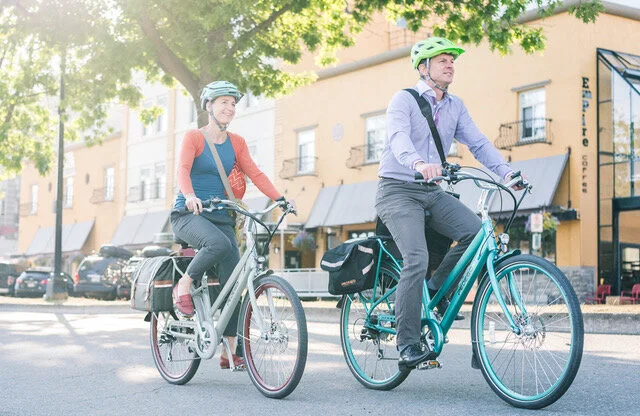If you believe in our vision, and you see Bike Sense as important to our mission, then there may be no better way for you to express your shared commitment than by including your name in our list of sponsors when the 7th edition of Bike Sense comes out in the spring of 2021.
Read MoreBCCC member Brendan Ladner, a Whistler resident, wrote the following post as an open letter to British Columbia’s newly appointed Executive Council members responsible for transportation - Minister of Transportation and Infrastructure Rob Fleming, and Minister of State for Infrastructure Bowinn Ma.
Read MoreAs a town that is lauded for its outdoor splendour, it is somewhat surprising that few investments have been made in dedicated cycling infrastructure for Nelson residents. But under the direction of council the last few years, staff has been tasked with resurrecting the City’s Active Transportation Plan from 2010, and went a step further by recently hiring a new senior planner.
Read MoreCycling culture in Revelstoke is big. The town boasts a machine-built mountain bike trail of some renown that runs a full vertical drop of 5,620 feet (and named, naturally, the ‘Fifty Six Twenty’). During a normal school year, the bike racks outside the elementary and high schools in town are packed — hundreds of bikes lined up to one another like dominoes. “There’s great potential to connect what we’ve go. The irony here is that everyone rides, but there are no bike lanes.”
Read MoreOn July 27th, the provincial government announced new and improved incentives intended to encourage British Columbians to buy electric-assist bicycles, or e-bikes. While the provincial government is contributing a total of $4 million to the rebates over the next two years, some believe the conditions of the consumer program may be too restrictive to result in meaningful shifts of British Columbians out of their cars and onto bicycles.
Read MoreLast year, changes went into effect at ICBC in order to limit costs and make the rating system fairer — and more just — for all who drive.
However, not every British Columbian owns or drives a motor vehicle. Vulnerable road users — people who predominantly walk, cycle or wheel for transportation, as well as those who use transit — represent neither the source of a significant proportion of the losses at the Crown corporation, nor the overriding need to overhaul its rating system.
Read More





